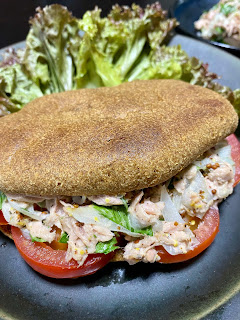癌 単細胞生物 多細胞生物 細胞生存戦略 The Cancer Code (6)
(
某日。
Jason Fung, The Cancer Code (Harper Wave, 2020) を読む。「癌 単細胞生物 多細胞生物 細胞生存戦略 The Cancer Code (5)」の続き。
癌の成長に寄与する環境を準備する、栄養センサーかつ増殖因子である insulin, mTOR, AMPKは、反応対象、反応時間がそれぞれ異なる。お互い補いながら機能するようだ。様々なデータ、酵素、ホルモン、生化学の諸点が論じられ、次のようにまとめられる。
インスリンは主に、食事経由の炭水化物とタンパク質に反応して増加し、数分以内に反応の効果を現す。mTORは主に食事経由のタンパク質に反応して増加し、18時間から30時間かけて作動する。AMPKは全体的な細胞エネルギー状況に反応し、全ての主要栄養素の摂取量を反映する。その全体的な効果は数日から数週間に渡る長期的な期間続く。癌はグルコースを消費することを非常に好むが、グルタミン酸を代謝することもできる。
“Insulin increases primarily in response to dietary carbohydrates and proteins, and responds within minutes. mTOR increases primarily in response to dietary protein and plays out over eighteen to thirty hours. AMPK responds to overall cellular energy, which reflects the intake of all macronutrients [carbohydrate, protein, fat]. Its total effect runs over the longer term, from days to weeks” (pp. 220-1). “Cancer loves eating glucose, but… can also metabolize glutamine [a protein]” (p. 234).
癌化した細胞が如何に巧みに単細胞生物の生存戦略を駆使しているか、論じられている (e.g. pp. 232-243)。
なお、インスリンと高インスリン血症 hyperinsulinemia に関しては前著 The Obesity Code (邦訳)と The Diabetes Code(邦訳)で詳述されている。
「The Cancer Code (7)」に続く。
久しぶりに、中島ノブユキ「メランコリア」などを聴く。




コメント
コメントを投稿